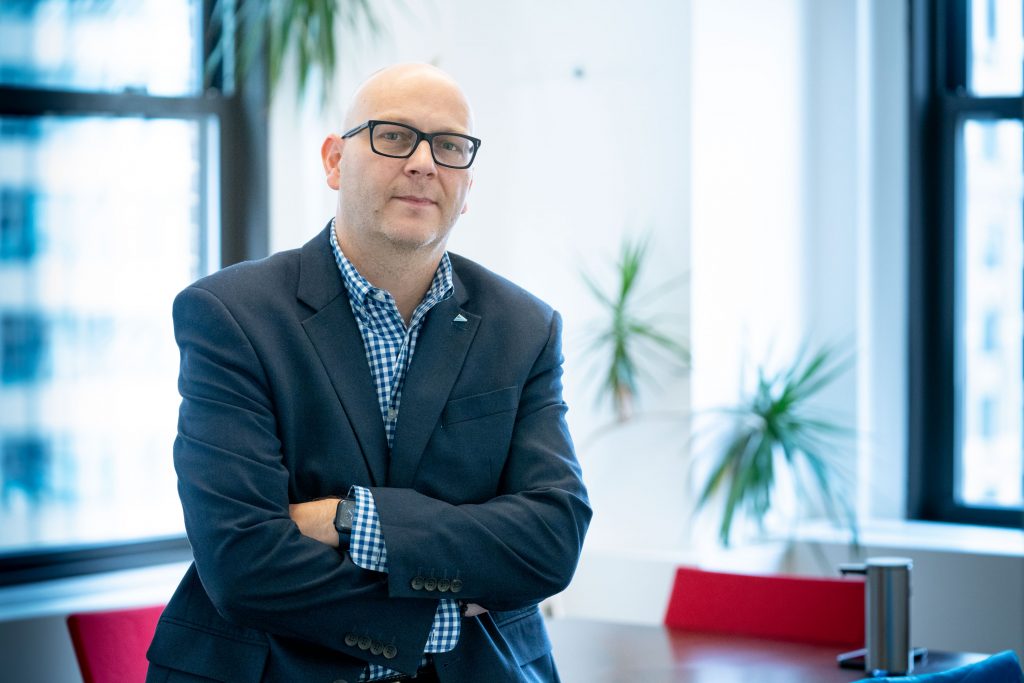
Daikin office, NY
My start with HVAC business was a little bit by accident. I don’t think anybody goes through school in the UK with the idea that they’re going to work in the HVAC industry. But for me, I was living in Plymouth in England. I was getting to the end of my high school education. I was wondering what to do. I wasn’t in a position financially to consider university at that point. So, I looked at the apprenticeship route, which is essentially a career path option where you do work based training and then get an education at the same time. I did that. And, got offered a position with Toshiba working in their air conditioning division, which was a factory in Plymouth at the time.
Connect with Lee on LinkedIn
Pictures by @fernandoalonsofotografo
I worked in various departments as an apprentice. I worked on the factory floor. I worked in the manufacturing engineering department, quality assurance, and then eventually found myself in R&D. I felt very, very much at home very quickly and did whatever I could basically to stay there. Eventually I finished my apprenticeship and was offered a full-time role as a design engineer and went from there and never looked back. That was really the foundations for everything that has transpired since.
There’s been three or four key milestones along the way. A lot of it was due to decisions I made or opportunities that I was afforded. So, as an R&D engineer, a couple of things happened. In the mid-90s, the UK HVAC industry was transitioning from R-22, which was a HCFC refrigerant, to non-ozone depleting refrigerants. I was asked if I would be interested in transitioning the existing platform of products that Toshiba made to the new refrigerant. I was like, “Sure, of course. Love to do that.” I didn’t have a great deal of experience at this point and only had a high-level knowledge of what was necessary to succeed. I was literally thrown in at the deep end and I learnt a lot along the way, studied a lot in my personal time, and took on a lot of product development to really make things work, and develop a product line that not just met our internal requirements, but also exceeded the performance of previous models. So, I learnt a lot in that process.
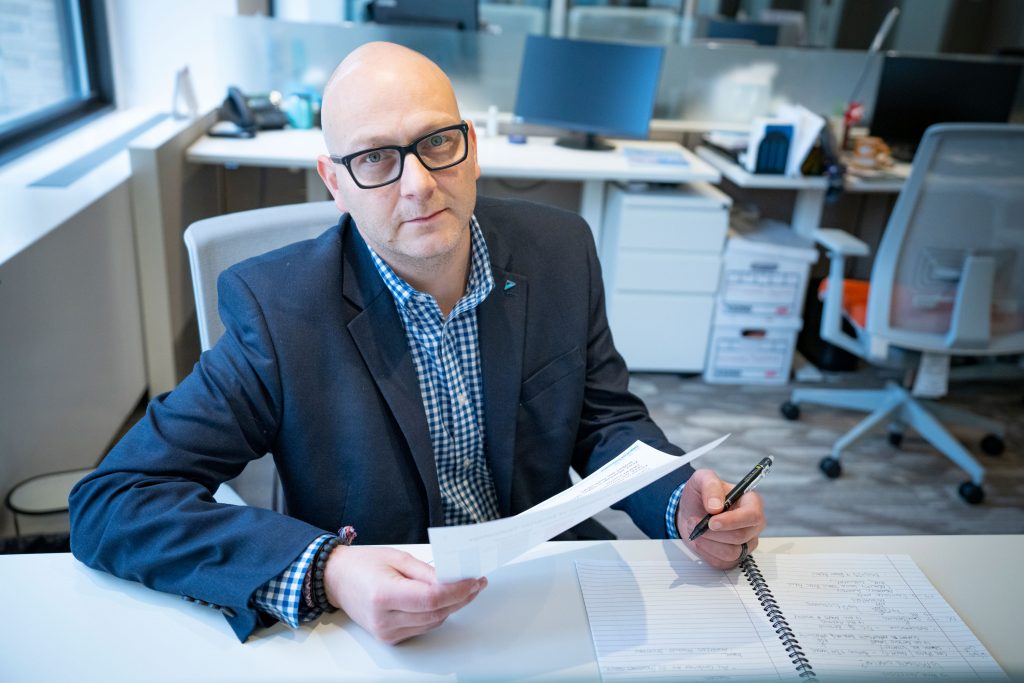
The next big thing was we were in the process of deciding who would be the lead engineer to develop a new VRF system. I got an opportunity to work with some exchange Japanese engineers that were in the UK at the time. They talked to me about my interest. I didn’t feel I was there in my career yet. I’d only been an R&D engineer for maybe three years. They assured me, “You’ve got all the characteristics. You know what you’re doing. You’re very, very knowledgeable. We would prefer that you come to Japan and learn about this VRF system.” And then eventually I got recommended, and I moved to Japan for the best part of a year. As a relatively young person living out of the country for the first time, I was exposed to a completely different culture, to a new way of doing things, and learnt a lot about myself, about how to survive, about how to be nimble and just engage with a completely different way of life very quickly and use that to empower what I was doing.
The next part is where my career evolved, and my time at Toshiba was coming to an end. The ethos of my role changed from new product innovation to cost reduction projects. As an engineer, that was a little tedious. So, I started considering my options. I really wanted to travel. I really wanted to be more customer facing. There wasn’t this kind of opportunity available to me at Toshiba, and I was given an opportunity at Daikin to really broaden my capabilities and take on those types of functions in a company that really specialized in the field that I had landed on by accident. So, moving into Daikin, I think, was a big decision, a big opportunity for my future. When I joined Daikin, I was really the only HVAC engineer in a small business support office in the UK at that time.
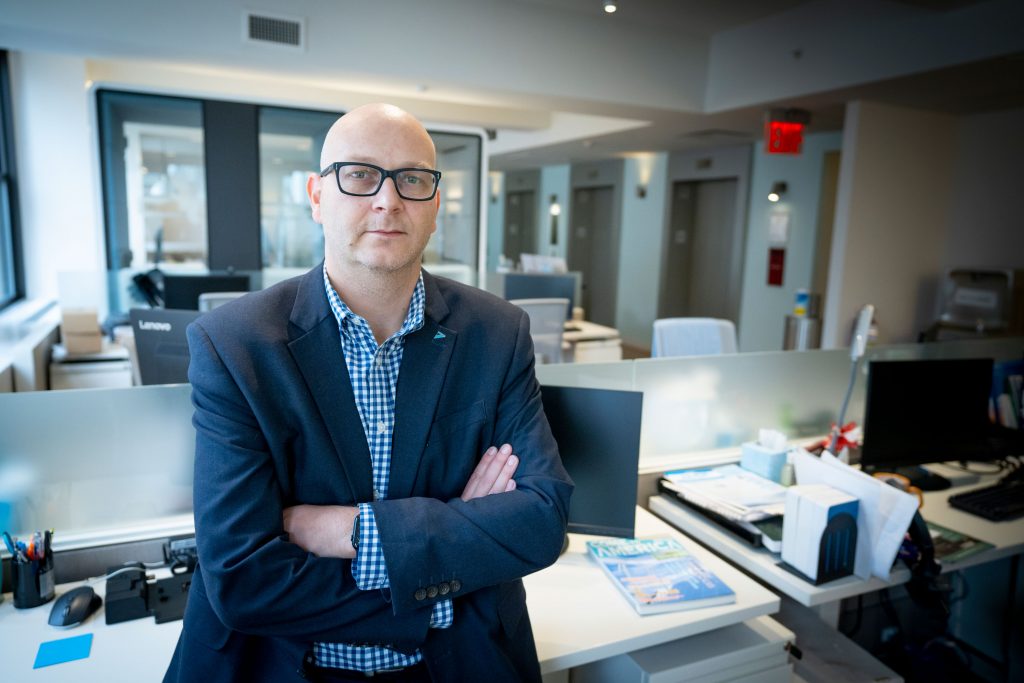
So, it gave me an opportunity to engage with customers and provide a level of service and support that they weren’t directly used to in the UK. I built a pretty strong reputation quickly. I built a specialized knowledge of Daikin’s products, and I developed awareness of our leadership globally. I was then asked, after two and a half years in Daikin, if I would be willing to move to the United States. So, I was young, single, could do whatever I wanted at that point in time, and obviously saw that as a huge opportunity to help pioneer Daikin’s entry into the North American market and move to New York. Without even skipping a beat from the original request to actually living in New York. The timeframe was less than a month. Upon arrival in New York with eyes wide open, I just did what it took to step-by-step to find a way to create a business here for the Daikin in the US. Knowing that I was probably the first person that sold something here and to see the size and scale of Daikin in the US today gives me a strong sense of pride. My experience and what I’ve done in the US has been a journey as well along the way.
Those are probably the four biggest things. Taking on the product, the development challenge, taking on the VRF Japan initiative, leaving Toshiba to move to an air conditioning specialist company, and then leaving the UK to come to the USA, probably the biggest real influences in where I am today.
I think to a certain extent, some people are probably born into leadership. Those are the people that go through school and they’re the head of their class, and they’re the ones that participate in a lot of the school related debate type of things. They’re the ones that go to university and become so-called professional CEOs. But I don’t think that is necessarily what makes a good leader. You could be a very effective leader with all those attributes, but you don’t have to have those attributes to be a good leader. For me, I think how you learn from your experiences, how you demonstrate your will, how you engage in opportunity are very important characteristics of foundations in leadership.
How you work with people is critically important. How you share a vision, how you empower people, how you trust them to find the passion in themselves to do the right thing and support them along the way. Get feedback, whether good or bad. Don’t scold people for being bold or being brave. All those kinds of characteristics in people can be the tools and the assets you need to move into leadership. For me, I don’t know that I would ever call myself a good leader. I think I’m a human being. I have good days. I have bad days. But I always strive to be supportive of my team, give clear instruction, allow people to wander down pathways that interest them even if it’s not necessarily the thing that they might be best served spending their time on right now. Because I think that when people are inquisitive and want to explore, that’s when you discover things that you didn’t realize were possible, or you didn’t realize were opportunities. It’s important to encourage that.
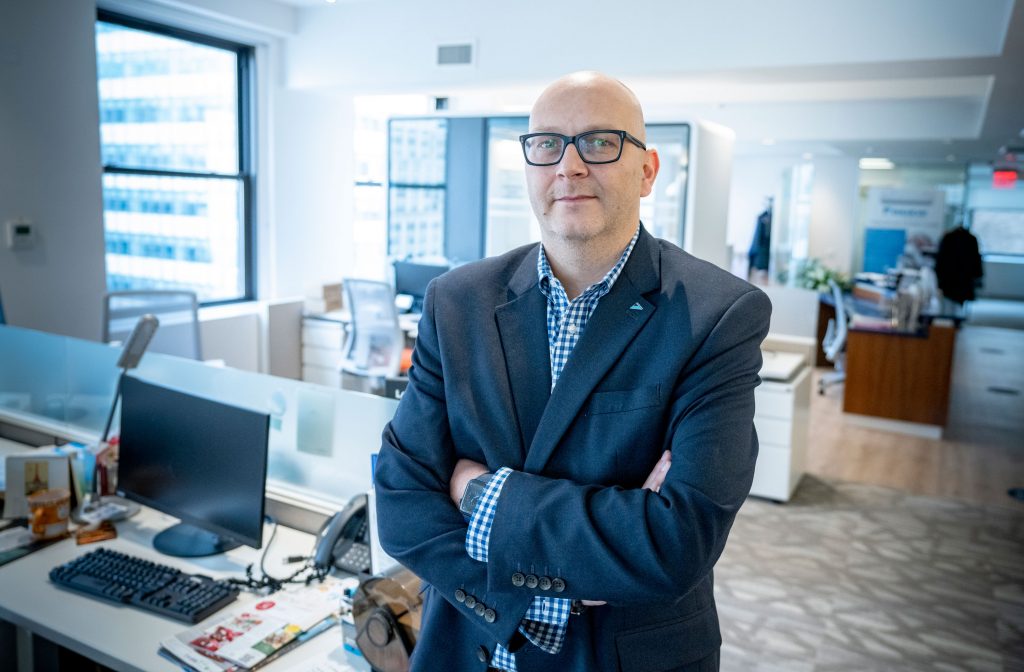
How we prepare our people for leadership positions is kind of an inherent thing in the company, really. At the end of the day, I think Daikin is a company that encourages the growth of people. One of our core philosophies is the success of Daikin and it is the cumulative contribution of everybody that works in the company. It might seem a bit textbook, but after the best part of 20 years working for this company, there’s something true to it. It’s not something that’s inflected on you every day, but it’s something as you grow with the company you just see examples of it all the time. The company encourages people to take on new challenges. It encourages actions. It’s looking for the so-called “nail that sticks out” as being a positive aspect of the company, not something that you need to rein in and bring in.
And as far as leadership preparation is considered, one thing that I’ve always found interesting with Daikin is this whole idea of core person and supporter. What that means is, projects can get assigned and implemented by a very junior person. A member of staff could be assigned as the project leader. Even an intern, for that matter. That leader of that particular project is going to have a team that typically includes senior management, or even executive leadership. He or she is expected to lead that team regardless of who’s actually involved in the project. It creates a very balanced environment where the people are empowered to do what they’re required to do. The people that are normally serving leadership roles have to get in and get their hands dirty. It creates a good semblance of how existing leaders can coach and encourage new leaders and give new employees, junior employees, an opportunity to lead projects and get that sense of accomplishment and work at how to lead the team, how to inspire a team. It’s a good foundational stuff for the next wave of the company, the longevity of the company as well.
In my current position, I feel like I’ve come full circle to be honest. I started learning about air conditioning and heat pumps in the beginning. Being in the UK, you don’t traditionally have air conditioning in homes. Certainly, when I grew up, I didn’t really recognize they even existed in commercial buildings. So, it was a little bit of a vague concept to me growing up. But obviously, as you move into the industry, you have to engage in learning the full gambit of what it is, how it impacts people’s lives, what’s the positive elements, what’s the negative elements, and how to best work with the tools that you have. So, I’m working in an advocacy role now. I’m doing a lot of market research and spending a lot of time sharing what I have learnt.
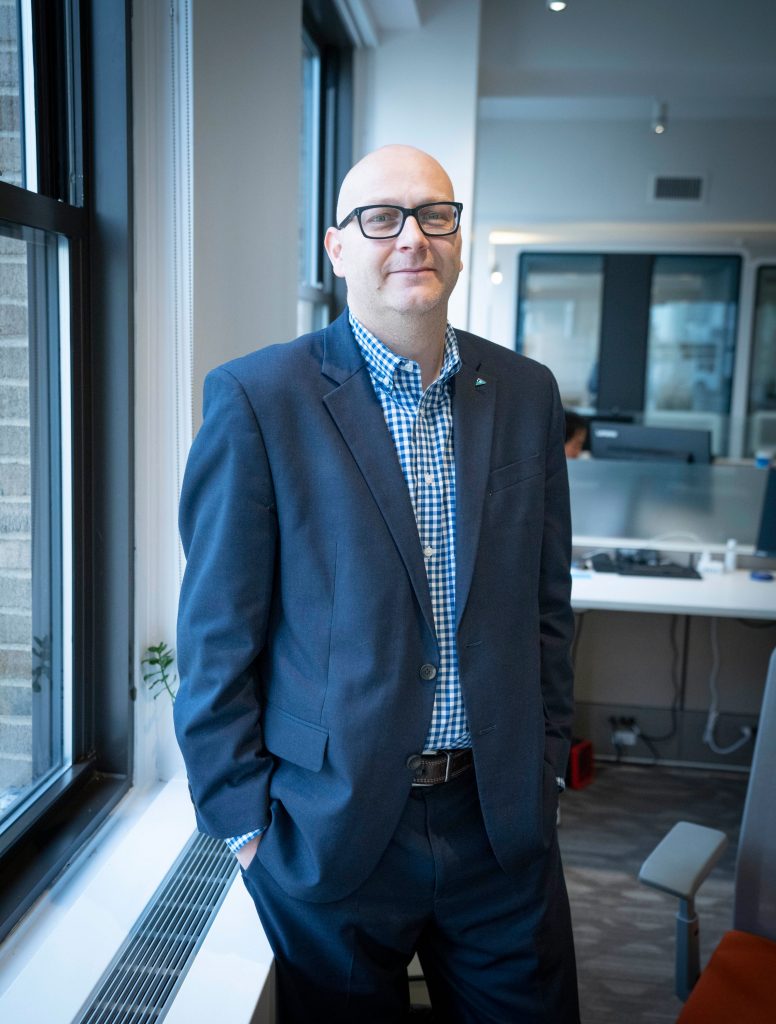
I’m working with government agencies, with NGOs, with utility companies, to help the industry as a whole understand the benefit of heat pumps, help understand how heat pumps play a major role in the decarbonization and electrification of homes and buildings in North America. Helping to raise industry awareness of why those types of equipment can be the future of the industry as it relates to space heating and water heating. And also, how this technology can perhaps reinvent the workforce that is struggling to attract, the next wave, the next generation of talent. The field of HVAC technician and even to a certain extent junior technical engineering and things like that, it’s just hasn’t had the influx of people that it needed or needs over the last 20 years.
But I think with electrification becoming such a big and important matter for the US to take on, there’s a lot of excellent opportunities for the youth today to enter an industry that is not just progressive, but it’s very sustainable. It’s very sustaining in that you can come in as a technician, you can evolve to an engineer, you can move into business, you can move into marketing, you can take on science-based roles, and you are working in a field that leverages environmental technologies critical to the future or our society. And I think going back to the original question, those are all the things that got me excited when I entered the industry. I feel like I’m almost taking my 25 plus years of experience now and starting again with what is the big challenge for us moving forward.
When it comes to the female workforce in HVAC and if being a male is an advantage, I guess from my perspective and maybe people will consider this to be misguided, but I was born in ’77, so I’m on that cusp of Gen-X and millennial generation change. And I’ve never looked at things in life of whether you’re a man or woman or what your cultural background is and things like that. As an apprentice, there were 20 students in my class. Four of them were female and everybody graduated. Everybody got very good jobs. Everybody has had great careers. And to be honest, I think some of the more successful people in my graduating class were the female members of the group. I’ve always approached my career as a person-to-person kind of endeavor. It’s not business to business. It’s not business to consumer. It’s people talking about their needs and solving their problems, and you do that person-to-person.
I’ve been lucky enough to work with really culturally diverse companies. Japanese companies generally aren’t considered culturally diverse. I’ve been lucky to work with global Japanese companies that have a blend of people that work for them from all backgrounds, all over the world and that just creates a hotbed of what I consider to be normal. There isn’t this difference. Is the HVAC industry predominantly a man’s world? I think perhaps it’s been that way in the past. I don’t think it’s been that way because it wanted to be that way. I think it’s how society has probably evolved. But I see many strong leaders from all cultural backgrounds, whether male or female, in North America today. I don’t believe it’s stuck in that old mindset. I think if anything, the industry is very, very confidently replanting the seeds of what this industry is and what it takes to be successful. It doesn’t matter your background. It doesn’t matter your sex. It doesn’t matter. It’s what you do. It’s how you execute your daily work, how you engage with people.
Do I have an advantage of being a man? Again, maybe I am just blind to it. I don’t know that there is necessarily an advantage. As I said, I’ve worked with my peers that are the same level as me, afforded the same opportunities as me, set the same expectations as me. Whether we’re men or women, we are held to the same accountability. I think that’s the way it should be. As it stands today, I don’t see that there’s an advantage one way or the other, personally.
To comment on the latest trends in HVAC today, it’s so different around the world to a certain extent. Whilst I am 100% committed to being here in the US, I’m also a little bit envious of other parts of the world where perhaps the speed to adapt and adopt new trends in the industry is a little quicker. But I think this new administration has done a lot in a very short space of time to wake up where we are. Global warming is something that needs to be tackled. Electrification is something that needs to be tackled. Connectivity of all devices, not just HVAC, but any energy consuming device, all with a more cohesive and easier to understand user interface. So, the benefits that are designed and intended can be realized. All those things are important.
I think we’re still struggling in the HVAC industry a little bit with traditional thinking, and to a certain extent past concerns with certain technologies. But I think, again, little by little we’re getting past that. But I think we’re in very enviable positions to do a lot of good for society with the solutions that we are representing today. They crisscross our daily lives in ways that often are not very visible to people. Air conditioning isn’t necessarily a sexy industry or a sexy solution like an electric vehicle, but it has as many, if not more, critical considerations as we look to address ever pressing environmental matters in homes and buildings. So, I think as a leader in the industry, we just have to keep focused on that. Keep focused on what it takes to change, what’s the right lever, what’s the right justification, and how to get buy-in. How to get people to look at this, not from a political perspective, but look at this because it’s the right thing to talk about. It’s the right thing to do.
I’ve been lucky to have had a lot of Japanese leaders, but then at the same time, a lot of more Western leaders. I think I’ve learned a lot from a lot of very good people. I’ve taken different attributes of different people and I try to mold them into how I go about things. Their leadership and how they led me and managed me and guided me and trusted me, was a positive impact for me.
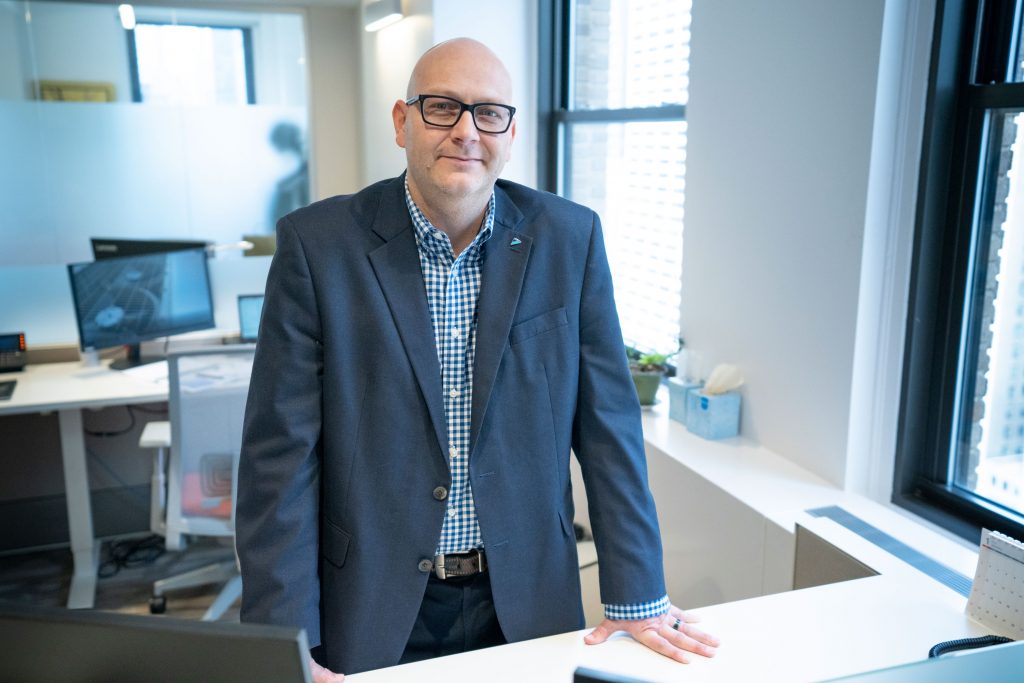
I guess there were two people that, for whatever reason, were very influential in my life. The first was my grandfather. He was blind, but he continued to work in the building industry as a residential new construction foreman for probably ten years after he lost his sight. He was the guy that really got me interested in getting my hands dirty, working with tools, the foundations of engineering, when I was a kid. I helped him do things that when I look back, it was just amazing. But he was doing those things, yet he had no sight. I think that his will and passion to just do it and just to break through his own limitations was very empowering for me.
The second person, he was basically my mentor when I became an apprentice. He was a fantastic engineer but was one of those guys that you could just get sidetracked really easily, to talk about the old days and his past experiences. He was one of the engineers that developed the Concorde back in the 70s. And he would tell me so many different stories of all the challenges they had, how the team worked through them and the perseverance they all had to the project. And again, I hear a lot of his voice when I’m giving instruction, when I’m working with my teams through the years. I hear a lot of his voice in the back of my head. When he retired, I never had a chance to see him again. I wonder what happened and how he lived out his life and whatnot. But I do look back at him as being probably somebody that just gave me the right amount of grounding when I was going into this industry as an immature teenager for all intents and purposes.
I have a 17-year-old son. So, he’s getting to that point where he’s very, very deeply considering what he wants to do with his life. At 17, I probably was just figuring out my life and I think he’s in the same boat, albeit he seems much better prepared than I was and is actively considering higher education in the field of engineering now.
For the future leaders at HVAC, my underlying message is this is an amazing industry. From the outside, I can imagine people would be like, “Really? Are you sure?” But it’s truly an amazing industry. We cover such a wide sector of society, but it’s not just the society aspect of it. This industry exposes you to science. It exposes you to business. It exposes you to sociology. It exposes you to traditional thinking, modern thinking, advanced thinking. It exposes you to old-school technology, emerging technologies, and everything in between. It’s a part of life that’s critical for our health, our well-being, social equity etc. as we move forward.
It is such a dynamic, diverse industry that you can learn something every day. I promise you. You can expose yourself to something new every day. And every day you continue to be a better person because of it. I think if people that aspire to go into this workforce and become leaders in the industry, kind of grab hold of that. I’m sure they will have an exciting and fun journey, just like I’ve had so far. I think there’s much more to happen in this industry that we are yet to discover. It’s going to be an exciting time. There’re a lot of things that we can all contribute along the way to create a meaningful, sustainable, environmentally conscious world moving forward.
